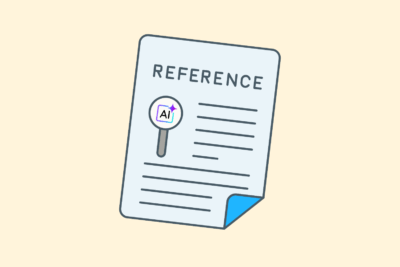Why authorship and branding are becoming important in AI resources

At a time when large language models (LLMs) such as ChatGPT, Claude and Gemini are increasingly taking over the role of search engines, the way information sources are selected is also changing. What I see is that authorship and branding are playing an increasingly important role. Not only for user trust, but also for visibility in the answers from these systems.
Where Google has long bet on E-E-A-T (Experience, Expertise, Authoritativeness, Trustworthiness), AI platforms are following that same path. A page without a clear sender is simply less likely to be cited or included in an AI response. That’s why I make authorship and brand signals a regular part of my SEO and GEO approach.
AI selects ever more critically for source reliability
Language models must assess whether a source is reliable enough to be included in a response. Because those models have no opinions of their own, they look for signals of credibility. Authorship is one such signal. Is there a name under the article? Is that person demonstrably expert in the area the article is about? These are important questions.
In addition, brand recognition plays a crucial role. Sites with a strong brand name, a consistent tone-of-voice and a clear specialization are more likely to be recognized as reliable sources. AI systems do not simply include an anonymous page in a response, preferring content whose provenance is clear. (1)
On every page I write, I clearly state who the author is, including a brief explanation of experience in that field.
This can range from a short bio at the bottom of the page to a regular author page with background, certifications and previous publications. In doing so, I give the language model context about my expertise.
In addition, I link authorship to the topic. I do not write an article about SEO in healthcare anonymously, but explicitly position it as something I wrote from experience with healthcare organizations. By doing so, I make it easier for AI to make a connection between my name and the topic.
Getting started with SEO? Feel free to get in touch.

The value of a recognizable brand
In addition to authorship, I also invest in brand consistency. I use a fixed domain name, a unified visual style and a recognizable tone-of-voice. This creates a pattern of reliability at the domain level. AI systems recognize that. Just as people know at some point, “That’s another article by that one specialist.
What helps with this:
- A clear area of expertise at the domain level (for example: SEO and AI)
- Consistent naming of pages, blogs and authors
- Regular publications within the same theme
- Internal links between articles, tools and author profiles
AI learns with patterns, and brand recognition ís a pattern. The more consistently I offer that, the more likely a domain will be recognized as a relevant, reusable resource. (2)
Where I see the difference in AI results
On platforms like Perplexity or Gemini, I notice that sites with author profiles and visible brand signals are structurally mentioned more often in citation windows. Also in ChatGPT (with browsing functionality) I see that pages are more likely to be included in responses once the source is clearly traceable to a credible name or recognizable brand.
It does not guarantee inclusion in AI results, but it significantly increases the chances. Especially in generative search results that combine multiple sources, it appears that AI prefers content with:
- A traceable sender
- A domain with topical authority
- A brand with content focus
Summary
Because AI helps decide what content is shown, shared or quoted, it is not enough to write well. You must also be recognizable and relatable. Authorship and brand positioning are the new SEO signals. Not just for humans, but also for machines.
Let each page speak on behalf of an expert, and make sure that expert stays consistently connected to your brand. Only then will you build trust, both with users and with the AIs that determine who is still visible.
| # | Source | Publication | Retrieved | Source last verified | Source URL |
|---|---|---|---|---|---|
| 1 | User-first E-E-A-T: What actually drives SEO and GEO (Search Engine Land) | 30/07/2025 | 30/07/2025 | 12/11/2025 | https://searchengineland.. |
| 2 | A Guide to Build Brand Awareness: 21 Tactics with Examples (Semrush Blog) | 02/11/2023 | 02/11/2023 | 20/11/2025 | https://www.semrush.com/.. |
- Adam Riemer. (30/07/2025). User-first E-E-A-T: What actually drives SEO and GEO. Search Engine Land. Retrieved 30/07/2025, from https://searchengineland.com/user-first-eeat-seo-geo-459684
- Ali, A. (02/11/2023). A Guide to Build Brand Awareness: 21 Tactics with Examples. Semrush Blog. Retrieved 02/11/2023, from https://www.semrush.com/blog/increase-brand-awareness/






